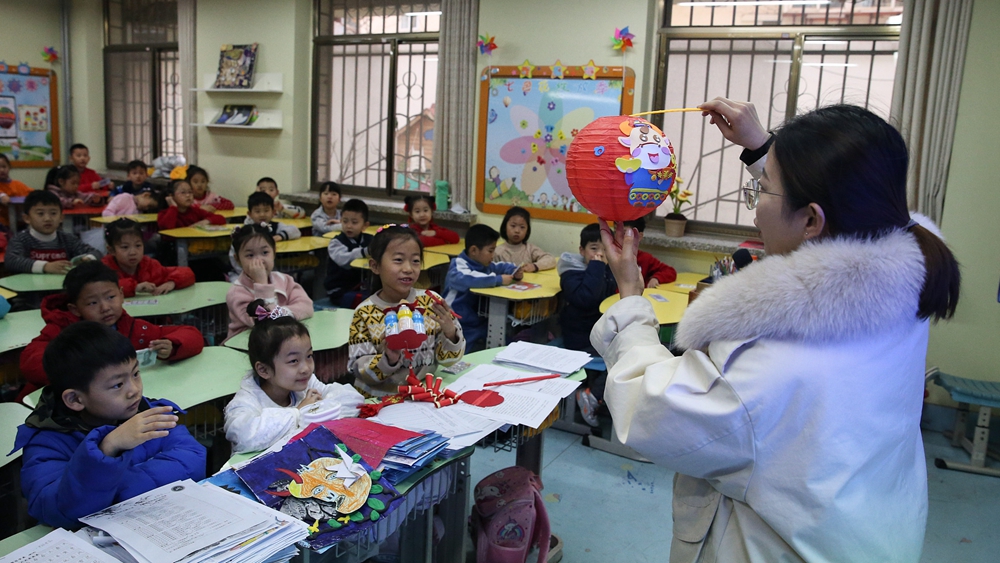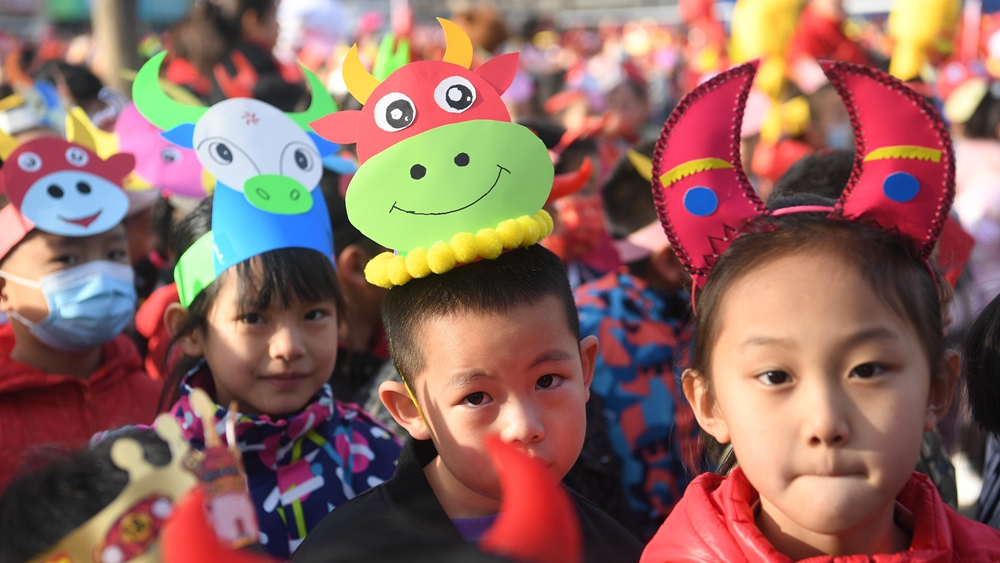
A teacher shows students a hand-made lantern at a primary school in Jinan City, east China's Shandong Province, February 28, 2021. /CFP
A teacher shows students a hand-made lantern at a primary school in Jinan City, east China's Shandong Province, February 28, 2021. /CFP
A rule on educational punishment in primary and middle schools across China is set to take effect on March 1 after it was introduced by the Ministry of Education in December 2020.
The regulation allows schools and teachers for the first time to discipline the students for their misbehavior and ask them to correct it.
To protect students as well as teachers, the rule on the one hand stipulates that schools and teachers can take disciplinary action when students commit acts of disobedience, engage in disorderly conduct, endanger others' safety or infringe on others' rights.
On the other hand, the rule specifies the methods teachers may not use when punishing students, including corporal punishment. The rule also bans teachers from using discriminative and insulting words that can denigrate students.
The Ministry of Education received more than 6,400 pieces of advice on the regulation since its drafting began in 2019, a relevant person in charge in the ministry told China City News, adding that more than 80 percent showed support for the regulation.
The rule was thought to respond to some controversial events caused by educational punishment in recent years, where some students said they were hurt by excessive punishment and some teachers endured excessive punishment after reprimanding students.

Students attend an opening ceremony for a new semester at a primary school in Yinchuan City, Ningxia Hui Autonomous Region, China, February 22, 2021. /CFP
Students attend an opening ceremony for a new semester at a primary school in Yinchuan City, Ningxia Hui Autonomous Region, China, February 22, 2021. /CFP
The new rule has become a hot topic online with nearly 200 million reactions on China's Twitter-like Sina Weibo after People's Daily announced the rule rollout along with infographics.
While most people agree that teachers should be empowered to enforce discipline by punishing students and correcting their behavior, netizens raised questions on how far the teachers can go.
Cheng Fangping, professor at the School of Education in Renmin University of China, told China City News that educational punishment is different from corporal punishment, because it aims to educate "ill-behaved" students by letting them know why they are wrong and correct their wrongdoings, and help the students better their personal development.
As for people's worry that teachers' disciplinary punishment might be emotionally hurtful to students, Cheng said that the rule only stresses that teachers have an educational punishment right and teachers should not take the punishment as their first choice or must exercise the punishment in face of "ill-behaved" students.
In Cheng's opinion, teachers should not only communicate with students after punishing them by telling them why they are punished, but also listen to the students and know what they think about the punishment and try to understand their negative behavior.

